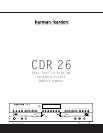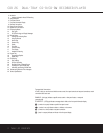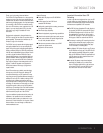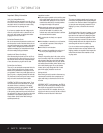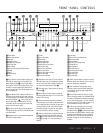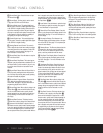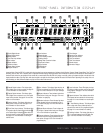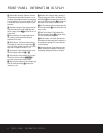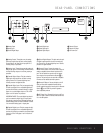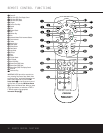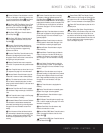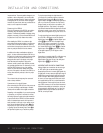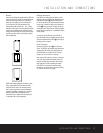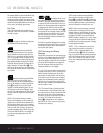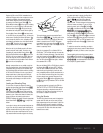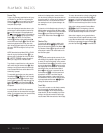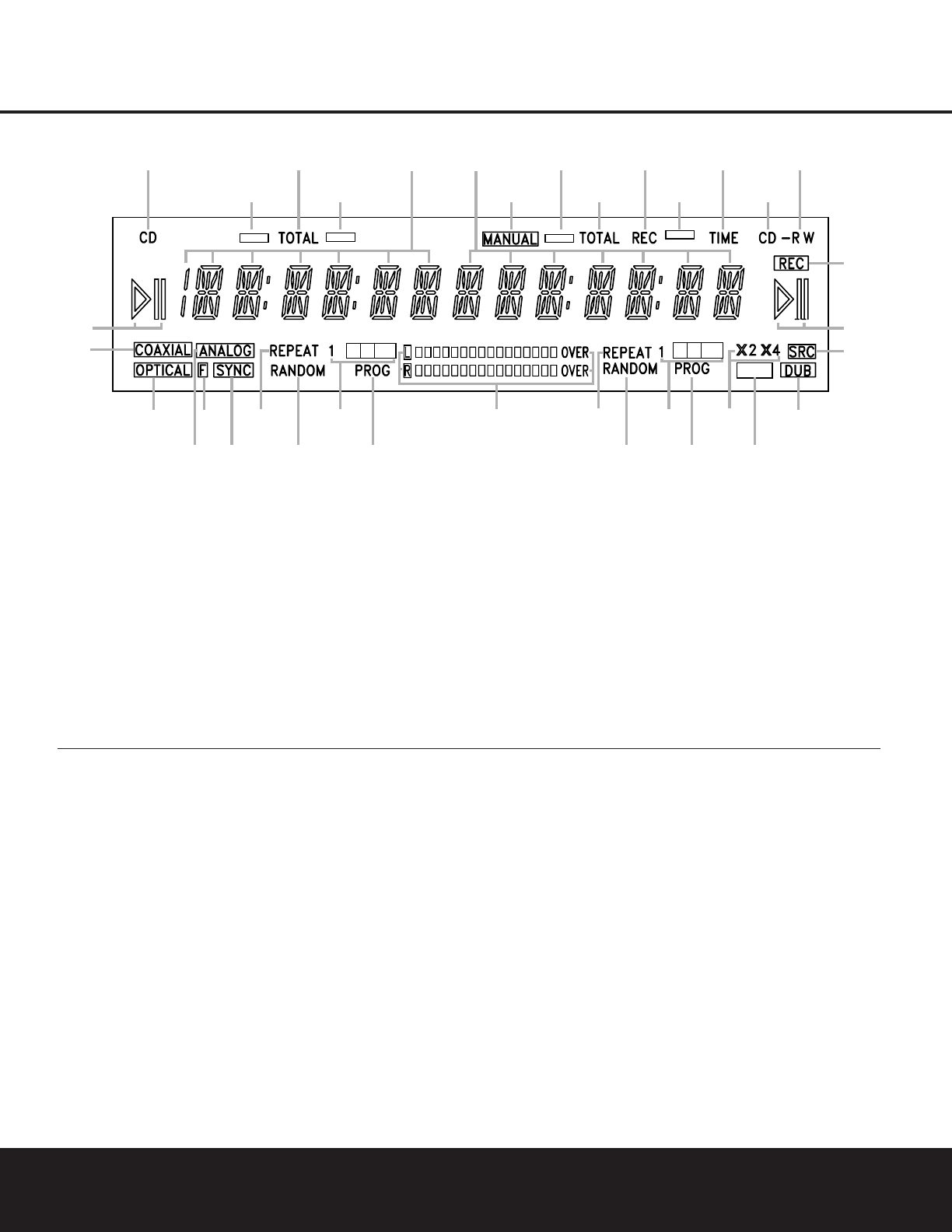
FRONT-PANEL INFORMATION DISPLAY
FRONT-PANEL INFORMATION DISPLAY 7
A LL -B
A LL -B
REM
TRK
REM
TRK
1 TR
C
U
W
L
N
O
P
V
YY
I
A
B
D
E
F
G
H
I
J
F
K
H
G
M
Q
R
S
T
V
X
T
W
R
O
A Coaxial Digital Indicator
B Optical Digital Indicator
C Analog Indicator
D Front-Panel Input Indicator
E Sync Indicator
F Repeat Indicators
G Random Indicators
H Repeat Status Indicators
I Program Indicators
J Level Indicators
K Speed Indicators
L 1-Track Dubbing Indicator
M Dubbing Indicator
N Sample-Rate Conversion Indicator
O Play/Pause Indicators
P Record Indicator
Q R/RW Indicator
R CD Indicators
S Time Indicators
T Remaining Time Indicators
U Recorded Time Indicator
V Total Time Indicators
W Track Time Indicators
X Manual Indicator
Y Information Displays
Important Note: Since the CDR 26 is a dual-deck player/recorder, there are two separate sets of indicators for the Random, Program, Repeat, Repeat Status, Time,Total Time,
Remaining Time and Track Time. In addition, there is a separate Information Display, Play/Pause Indicator and CD Indicator for each deck. As the function of these indicators is
identical for both decks, they are described in this manual with a common letter.When the CDR 26 is playing or recording a disc, any indicators that light on the left side of the
display describe the status of the Play Deck, while those that light on the right side of the display describe the status of the Record Deck. Depending on the activity of the unit
and the settings you select, different indicators may light on the two sides at the same time.
A Coaxial Digital Indicator: This indicator lights
when a digital source is being recorded. See page 20
for more information on source selection.
B Optical Digital Indicator: This indicator lights
when a digital source connected to one of the optical
inputs is being recorded. See page 20 for more infor-
mation on source selection.
C Analog Indicator: This indicator lights when an
analog source is being recorded. See page 20 for
more information on source selection.
D Front-Panel Input Indicator: This indicator lights
in conjunction with the
Coaxial Digital Indicator A
or the Optical Digital Indicator B when either the
front-panel coaxial or optical input has been selected.
See page 20 for more information on selecting an
external source.
E Sync Indicator: This indicator lights when the unit
has been programmed for a CD Sync recording. See
page 20 for more information on CD Sync recordings.
F Repeat Indicators: These indicators light when a
repeat function is being used. See page 18 for more
information on repeat play.
G Random Indicators: These indicators light when
random playback has been programmed for one of
the CD decks. See page 16 for more information on
random play.
H Repeat Status Indicators: These indicators dis-
play the type of repeat function being used. See page
18 for more information on repeat status.
I Program Indicators: These indicators light when
one of the CD decks is being programmed for play-
back options. See page 18 for more information on
programmed play.
J Level Indicators: These LEDs display the input
level during an analog recording, and the output level
during playback. See page 21 for more information
on record levels.
K Speed Indicators: These indicators show which
record speed has been selected for dub recordings.
See page 19 for more information on record-speed
selection.
L 1-Track Dubbing Indicator: This indicator lights
when a single track is being dubbed by itself, as
opposed to the entire disc or a programmed playlist.
See page 19 for more information on dubbing.
M Dubbing Indicator: This indicator lights when a
dub is in progress between the two CD decks. See
page 19 for more information on CD dubbing.



